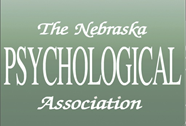Do you now, or have your previously volunteered with NPA?
It was not until I served on boards, such as Co-chairing the Legislative Committee and working on professional affairs, and most recently the Ethics Committee, that I felt that I really had a direct influence. Most rewarding however has been the honor of serving as our APA Council Representative.
I have had the opportunity to make our voice heard and have influenced policy that impacts our entire profession. I was recently elected by my fellow APA council members to serve on the newly reformed Rural Psychology Committee as the Member at Large and am working on policy including statements about the need for expanded telecare services, varied mental health impacts on different parts of rural America, seclusion and restraint, master’s level licensure, and in continuing to provide support for diversity and stand up for ALL of our patients. I have had the opportunity to continue to lobby our house and senate representatives to support our profession and hopefully bring a degree of reasonableness to future national legislation impacting people’s wellbeing and mental health. It is an unprecedented time, and I have been compelled through my work to stand up for our patients, our fellow psychologists, and for our communities. I urge everyone to get involved; your voice matters even if it sometimes feels like it doesn’t, and you are needed so much more than you know!
Where you are now working and what is your role?
Professionally I serve as the Program Director for the men’s forensics unit at the Lincoln Regional Center. I am also affiliated with Madonna Rehabilitation Hospital as a post-doctoral supervisor, and have a small private practice specializing in neuropsychological assessment and disability evaluations.
Tell us about your path to becoming a psychologist (educational background, career decisions, etc.)
I transitioned to psychology a little later than most coming from another social service career. I completed my Psy.D. at Antioch University, Seattle with a focus in forensics and neuropsychology. My search for the best fit internship is what led me to the Nebraska Consortium. As so often happens, internship turned into a job and ultimately to a career. I completed my two year post-doctoral in neuropsychology through Madonna Rehabilitation Hospital, Lincoln. While the training has been second to none, it has been my work with my colleagues and the opportunities here that have kept me in my adopted home.
What do you love most about your current position?
Working in my capacity at LRC affords me the opportunity to continue to challenge myself daily! When you work in a state facility you have the chance to engage in long term care and really get to understand who people are, what their strengths and challenges are. If I can help them get through what may be the most difficult time in their lives and be successful, then there is no better job.
What do you like to do when you aren’t working? Any fun hobbies/interests?
As someone who likes to travel and has family scattered across the country, Nebraska is in dead center of everywhere. It is both a great launching point and allows for a calmer more peaceful life for me and my family.
What’s the most helpful piece of advice you’ve received?
I have been given two pieces of great advice that I think can benefit all of us. The first was to appreciate and never dismiss a method, tool, or process just because it may not fit your main focus. You never know when it may be exactly what is needed
The second was to do what scares you. Challenge yourself, work with differences, and engage in a professional manner outside of your comfort zone. This grows our competency as professionals and expands our understanding of humanity which makes us better people.
Download Member Spotlight PDF: Shawn Curtis
You can connect with/send a message to Dr. Curtis HERE


